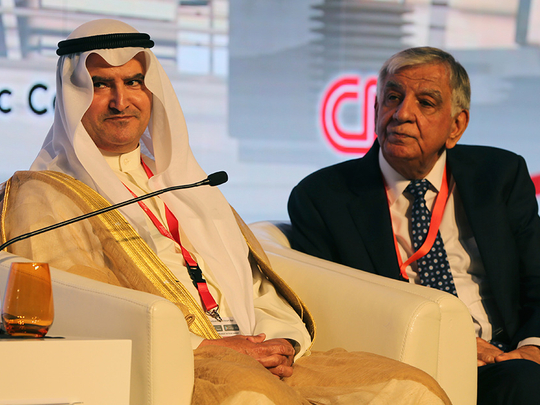
Abu Dhabi: The question that will define 2017 in the oil and gas world is how to commit countries to cut the amount promised, according to Essam Al Marzooq, Kuwait’s Minister of Oil, Electricity and Water, speaking at the Global Energy Forum in Abu Dhabi on Thursday.
He was referring to the Opec countries, in addition to 11 other non-Opec countries, who agreed to cut oil production in November 2016 to address the oversupply and raise prices after a two year crash.
“The commitment needs the cooperation of all 25 countries,” Al Marzooq said. “Work started in December with the five countries that make up the monitoring committee to create a mechanism that can inform us of each country’s compliance to the cuts.”
Al Marzooq has previously talked of monitoring exports to enhance the deal.
He went on to say that it was difficult to measure Opec commitment in the first month, but noted that the monitoring committee would continue to keep an eye on the average oil production over the next six months.
Al Marzooq added that the mechanism has the support of Opec Secretary General, Mohammad Sanusi Barkindo and Saudi Arabian energy minister Khalid Al Falih.
The monitoring committee will meet in Vienna at the end of this month, and a statement regarding the mechanism is expected, according to the Kuwaiti minister.
Al Mazrooq also said that Kuwait had already cut its production by more than what it committed to under the Opec deal. “We intend to lead by example,” he said.












